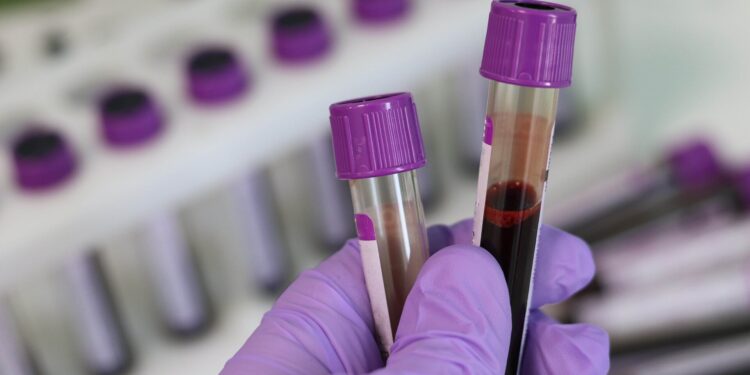Credit: CC0 Public Domain
Research funded by the National Institutes of Health has found that measuring two types of fats in the bloodstream as well as C-reactive protein (CRP), a marker of inflammation, can predict a woman’s risk of cardiovascular disease decades later. The findings, presented as breaking research at the 2024 European Society of Cardiology Congress, were published in the New England Journal of Medicine.
“We can’t treat what we don’t measure, and we hope these findings will help identify even earlier ways to detect and prevent heart disease,” said Paul M. Ridker, MD, MPH, study author and director of the Center for Cardiovascular Disease Prevention at Brigham and Women’s Hospital in Boston.
For the study, researchers collected blood samples and medical information from 27,939 health care providers living in the United States who participated in the Women’s Health Study.
The women, who began the study between 1992 and 1995, at an average age of 55, were followed for 30 years. During that time, 3,662 participants had a heart attack, stroke, surgery to restore circulation or cardiovascular death. The researchers assessed how high-sensitivity CRP, along with low-density lipoprotein (LDL) cholesterol and lipoprotein(a), or Lp(a), a lipid partly composed of LDL, singularly and collectively predicted these events.
Participants were grouped into five categories, from those with the highest to the lowest levels, to measure each of the three markers. The researchers found that women with the highest levels of LDL cholesterol had a 36% increased associated risk of heart disease compared with those with the lowest levels. Women with the highest levels of Lp(a) had a 33% increased associated risk, and those with the highest levels of CRP had a 70% increased associated risk.
When all three measures (LDL cholesterol, Lp(a) and CRP) were assessed together, participants with the highest levels had a more than 1.5-fold increased risk of stroke and a more than 3-fold increased risk of coronary heart disease compared with women with the lowest levels.
The researchers note that although only women were evaluated in this study, they would expect to find similar results in men.
“In recent years, we’ve learned more about how increased levels of inflammation can interact with lipids to worsen cardiovascular disease risk,” said Ahmed AK Hasan, MD, program director at the National Heart, Lung, and Blood Institute (NHLBI). “This helps explain why lower levels are often better.”
Immune cells, which help the body repair itself after injury or infection, can also sense cholesterol buildup in cells or become activated in response to plaque buildup and send inflammatory signals. This creates a hyperinflammatory environment in which plaque can form, grow, or even rupture, leading to cardiovascular events.
To promote optimal cardiovascular health, researchers emphasize primary prevention. This includes regular physical activity, eating a heart-healthy diet, managing stress, and avoiding or quitting smoking. Other measures for those at increased risk may include taking medications to reduce cholesterol and/or inflammation.
Researchers also found that steps taken earlier in life to support heart and vascular health can add up over time and be correlated with better health outcomes years or even decades later.
LDL cholesterol, which is routinely measured by healthcare professionals, can be treated with widely available therapies, such as statins. However, standard recommendations for Lp(a) and CRP screening may vary.
Some countries recommend screening for Lp(a) because high levels are often due to inherited risks. In areas where Lp(a) screening is not routine, such as the United States, doctors may order tests for people with heart disease or a family history of the disease. Some therapies are available for people with high levels, and researchers are testing new approaches to personalize and improve treatment options.
CRP screening tests also vary. Screening often depends on a person’s underlying risks or is left to the discretion of the provider. Colchicine, an anti-inflammatory treatment previously used for gout, was approved by the Food and Drug Administration in 2023 to offset cardiovascular disease risks in people with atherosclerosis. Other anti-inflammatory therapies and approaches are under investigation.
More information:
Inflammation, cholesterol, lipoprotein(a) and cardiovascular outcomes over 30 years in women, New England Journal of Medicine (2024). DOI: 10.1056/NEJMoa2405182
Provided by the NIH/National Heart, Lung and Blood Institute
Quote:Single blood test predicts 30-year cardiovascular disease risk in women (August 31, 2024) retrieved August 31, 2024 from
This document is subject to copyright. Apart from any fair dealing for the purpose of private study or research, no part may be reproduced without written permission. The content is provided for informational purposes only.



